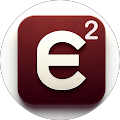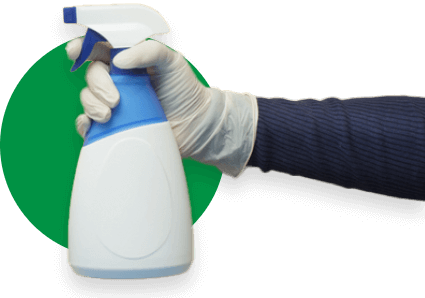Viruses are the smallest of all the microbes. They are said to be so small that 500 million rhinoviruses (which cause the common cold) could fit on to the head of a pin. In 2020, many Dallas clients are asking for help controlling these tiny particles to keep their facilities disinfected and safe for both employees and customers. Dallas Janitorial adheres to best in class procedures and protocols as a source for their clients.
According to the World Health Organization (WHO), when someone who has COVID-19 or the flu coughs they release droplets of infected fluid. Most of these droplets can be exhaled on nearby surfaces and objects, such as desks, tables or telephones. People could catch COVID-19 by touching contaminated surfaces or objects, and then touching their eyes, nose, or mouth. In other words, COVID-19 spreads in a similar way to the flu and Dallas Janitorial is experienced, ready, and able to sanitize your facility.
Sanitizing Services In Dallas
To address your business concerns, the team will understand traffic patterns and occupancy levels to determine your specific needs. Based on that information, they will recommend a frequency of cleaning service to help reduce cross-contamination or some other actions to help you maintain a healthy facility for your customers, your employees, and yourself.
Focus Maximum Effort On Maximum Contact
Start in the most obvious places. Frequent hand washing/hand sanitizing is one of the best ways to prevent the spread of disease, including the H1N1 influenza virus, salmonella, staph, HIV-1 (AIDS virus), and many others. In general, the frequency of cleaning and disinfection should be based on the level of use; practice routine cleaning of frequently touched surfaces like counters, desks and tables, and objects such as telephones, keyboards, handles, and faucets need to be wiped with disinfectant regularly. Surfaces and objects in public places, such as shopping carts and point of sale keypads should be cleaned and disinfected before each use.
Preferred Disinfection Tools
Three categories of products are effective in killing viruses.
- The EPA recommends the use of EPA-registered household disinfectant
- Diluted household bleach solutions may also be used if appropriate for the surface. Check the label to see if your bleach has a sodium hypochlorite concentration of 5%–6% and not expired. Bleaches designed for safe use on colored clothing are not suitable for disinfection. Bleach solutions ( 4 teaspoons bleach per quart of water) will be effective for disinfection up to 24 hours.
- Alcohol solutions with at least 70% of alcohol may also be used.
Alternative Disinfection Methods
Current research shows that traditional cleaning methods are sufficient. As for the efficacy of alternative disinfection methods against the COVID-19 virus, efficacy is not known. This includes ultrasonic waves, electrostatic disinfectants, high-intensity UV radiation, and LED blue light. EPA does not routinely review the safety or efficacy of pesticidal devices, such as UV lights, LED lights, or ultrasonic devices. Therefore, EPA cannot confirm whether, or under what circumstances, such products might be effective against the spread of COVID-19.
CDC does not recommend the use of sanitizing tunnels. There is no evidence that they are effective in reducing the spread of COVID-19. Chemicals used in sanitizing tunnels could cause skin, eye, or respiratory irritation or damage.
Disinfecting After a Coworker Gets Sick
According to the Centers for Disease Control (CDC), if a member of your team tests positive, you should take steps to sanitize the work area in order to control the spread.
Companies do not necessarily need to close operations, but immediately close off affected areas in the space of the employee. Open outside doors and windows to increase air circulation in the area. Wait 24 hours before you clean or disinfect. If 24 hours is not feasible, wait as long as possible.
Clean and disinfect all areas used by the person who is sick, such as offices, bathrooms, common areas, shared electronic equipment like tablets, touch screens, keyboards, remote controls, and ATM machines. Vacuum the space if needed. Use vacuum equipped with high-efficiency particulate air (HEPA) filter, At Dallas Janitorial Services, the safety of our team members, our clients, and the public is vitally important in everything that we do. In light of the fluid situation regarding COVID-19, Dallas Janitorial Services remains vigilant in monitoring the most up-to-date safety, infection control and cleaning protocols recommended by global experts, including the Centers for Disease Control and Prevention (CDC), the World Health Organization (WHO), the Occupational Safety and Health Administration (OSHA).







